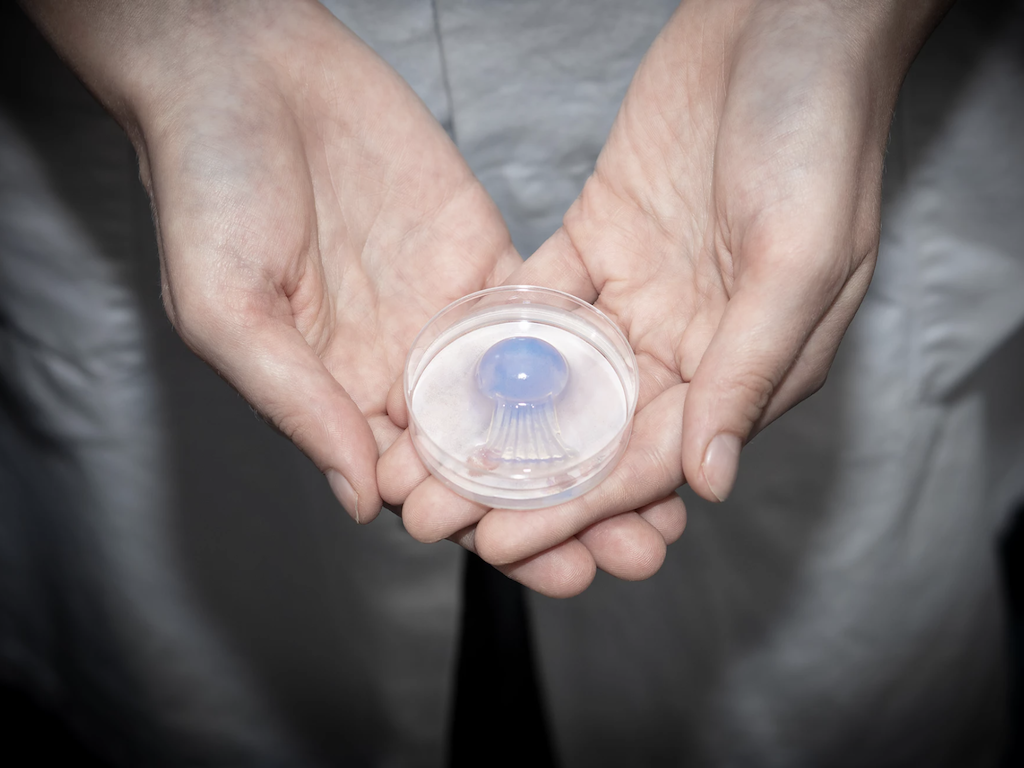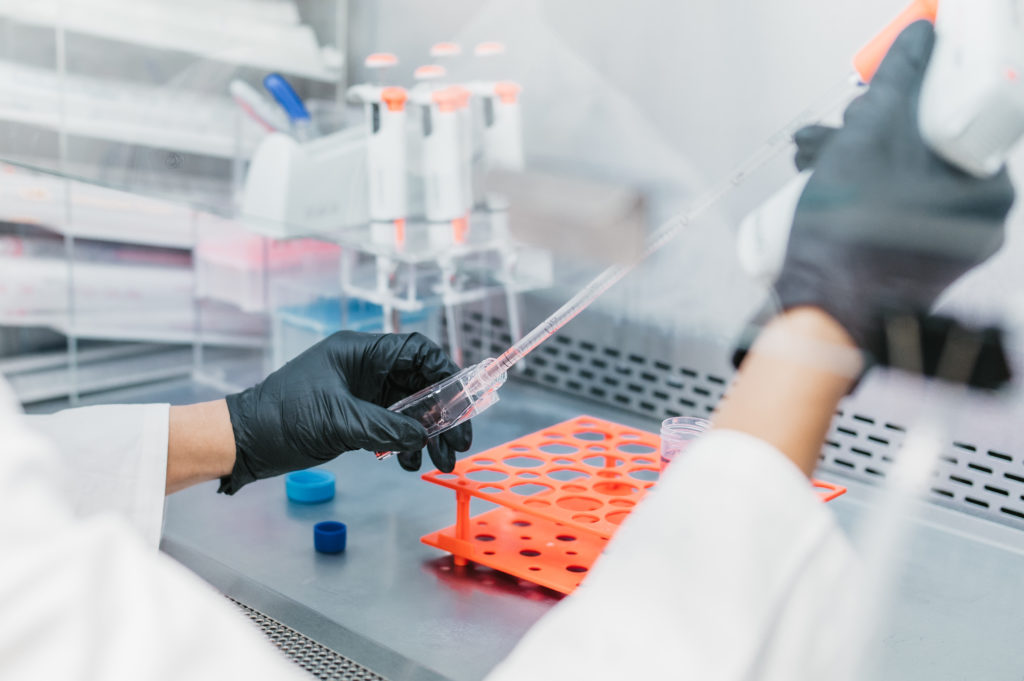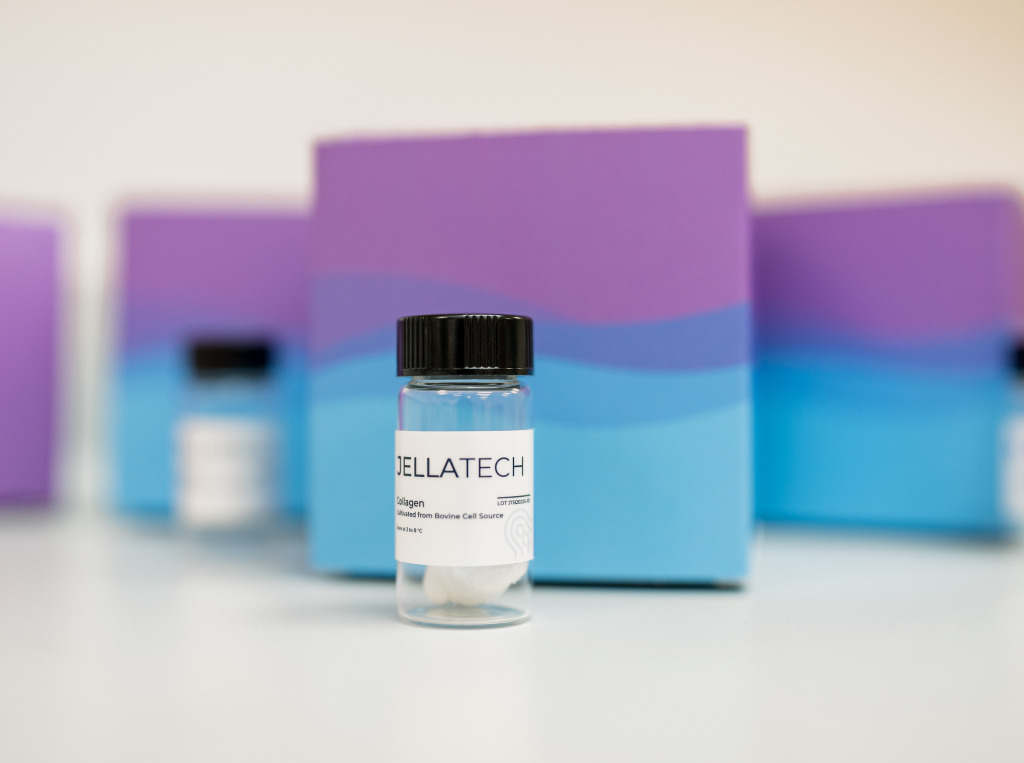Cell-Based Collagen Brand Jellatech Completes $3.5M Oversubscribed Seed Round to Scale Up Animal-Free Protein Production
3 Mins Read
North Carolina-based biotech startup Jellatech has announced a $3.5M oversubscribed seed funding round to amp up the production of its cell-based collagen and other proteins. It comes months after the firm created a fully functional human collagen, which added to its portfolio of bovine and porcine collagen.
The fundraising round was led by Nordic VC firm byFounders, with other investors including Milano Investment Partners, Joyful VC, Siddhi Capital and Blustein. Jellatech says it will use the capital to scale up production, establish partnerships, and commercialise its animal-free proteins for use in healthcare, personal care, biomedical research, and food and beverage.
When Jellatech was founded in 2020, its focus was on creating cell-based collagen and gelatin – two animal proteins widely used across a number of industries. It has made multiple strides in the former department, unveiling a full-length, triple-helical collagen created with its proprietary cell line last year, which functions identically to conventional sources.
In March, it unveiled its cell-based human collagen, which is typically used in biomedical and clinical applications, including tissue engineering, arthritis treatment, regenerative medicine, 3D bioprinting, and dermal fillers. The company says it is developing more proteins as part of its portfolio.
Tackling collagen-driven deforestation

“Jellatech’s technology unlocks a fundamentally new branch of the tech tree of our species: creating complex proteins from scratch, at scale, without having to ‘mine’ animal bodies,” said Magnus Hambleton, an investor at byFounders. “Jellatech sustainably and ethically produces large, complex proteins at scale starting with collagen. The impact that this can have is going to be enormous.”
Collagen – which is the most abundant protein in animals and is typically found in cattle, pigs and fish – has a detrimental impact on the environment. An investigation this year found that tens of thousands of cattle raised for collagen production are on farms linked to deforestation in the Amazon – an ongoing crisis contributing to climate change and biodiversity loss. According to one estimate, tropical deforestation is the cause of 20% of global greenhouse gas emissions. The industry has also been linked to violence against Indigenous populations in Brazilian forests.
“Instead of isolating and purifying collagen and gelatin from animals we grow it – using cells in a bioreactor. We don’t require acres of land, live animals, shipping, slaughtering and various complicated processes to produce collagen,” Jellatech co-founder and CEO Stephanie Michelsen has previously said. “With our proprietary method we design, grow and purify collagen and gelatin, all in the same place.”
Collagen’s health effects

Jellatech taps into a sector with rapid growth potential – the global collagen market was valued at $9.12B in 2022, and is expected to grow annually by 10.2% until 2030. Despite this demand, however, the benefits of collagen are subject to major debate. While some claim it can improve hair, skin, nails and joints – this slowing the process of ageing – the Harvard School of Public Health cautions consumers over study findings as most, “if not all”, of the research has been funded by industry members or scientists affiliated with stakeholder brands.
However, some research has pointed to the benefits of consuming collagen-building foods, rather than consuming collagen itself. Foods rich in vitamin C, zinc, copper, silicon, and the amino acids lysine and proline, have been linked to healthy collagen production.
Other companies are making strides in the animal-free collagen space. French biodesign startup Geltor has developed fermentation-based vegan collagen peptides. Meanwhile, Israeli cultured meat company Aleph Farms (which became the first startup to file for regulatory approval of cultivated meat in Europe in July) added cell-based collagen to its product portfolio in March. It expects to launch the alt-protein commercially next year.



